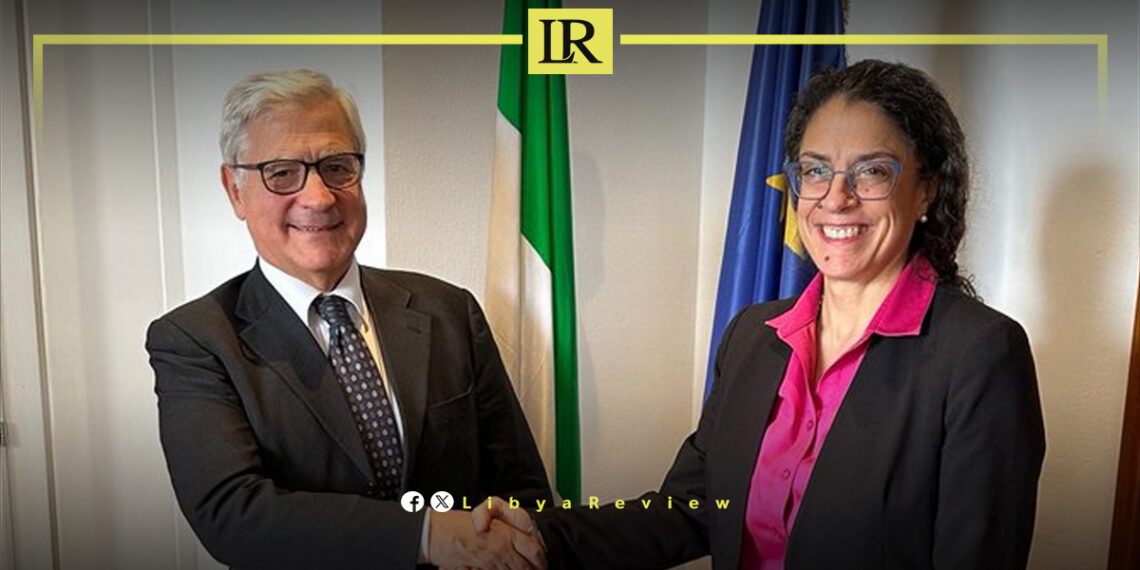On Wednesday, the Acting Head of the United Nations Support Mission in Libya (UNSMIL), Stephanie Khoury, met with senior officials from Italy’s Ministry of Foreign Affairs in Rome to address the escalating crisis surrounding Libya’s Central Bank and the closure of key oil fields.
In her meeting with Pasquale Ferrara, Director General for Political and Security Affairs at the Italian Ministry, Khoury underscored the urgency of the situation and the need for a unified approach to tackle Libya’s financial and political instability.
Describing the meeting as “constructive,” Khoury highlighted the importance of finding sustainable solutions to Libya’s ongoing challenges. Central to their discussion was the political deadlock over the leadership of the Central Bank of Libya (CBL), which has crippled the country’s ability to manage its financial resources effectively. The talks also touched on the closure of several oil fields, which has further exacerbated the country’s economic crisis.
Both parties stressed the need for a unified, legitimate state apparatus and reiterated that dialogue remains the only viable path to achieving long-term stability in Libya. The inability to agree on the leadership of the Central Bank has prevented the institution from functioning fully, contributing to a deeper economic and political crisis.
The crisis surrounding the Central Bank of Libya has become a major point of contention among the country’s rival political factions. With the Central Bank split between the country’s eastern and western factions, both sides have vied for control over the nation’s financial resources, leading to deadlock. This situation is further complicated by the closure of key oil fields, which has significantly impacted Libya’s revenue, as the oil sector accounts for the majority of the country’s income.
In recent months, Libya’s oil output has been disrupted due to blockades and shutdowns, driven by political rivalries. This has heightened the urgency for a resolution to the Central Bank leadership crisis, as continued dysfunction could further destabilize the country’s economy and delay the provision of essential services.
Khoury’s visit to Italy is part of the United Nations’ broader diplomatic effort to mediate between Libya’s competing factions and bring an end to the political and economic turmoil. Despite rounds of talks organized by UNSMIL, there has been no definitive solution to the Central Bank issue.
The United Nations has hosted several rounds of consultations between representatives of Libya’s Presidential Council and the House of Representatives and High Council of State, but these talks have yet to yield a final agreement.


